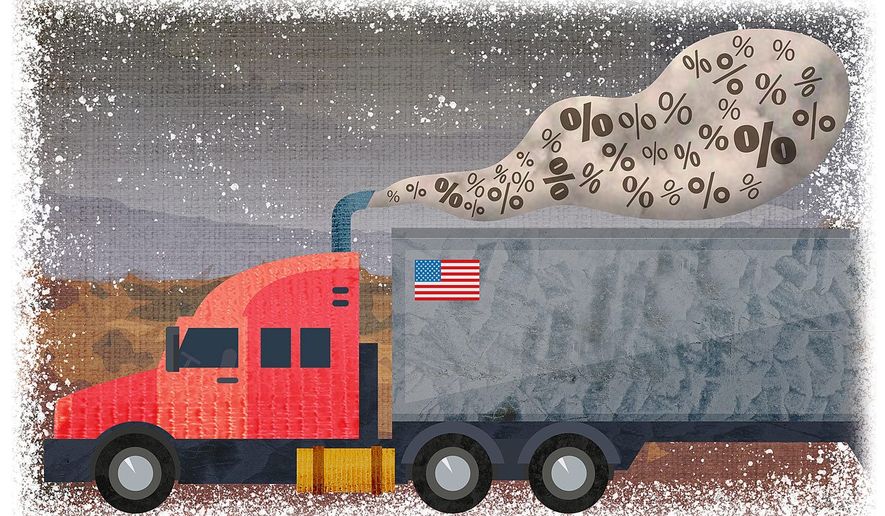OPINION:
Trucking is the lifeblood of the American economy. We merge millions of people and machines, 24 hours a day and 365 days a year, to transport nearly every product produced, manufactured and sold. Trucks move approximately 70 percent of the nation’s freight, and four out of five communities rely solely on us to deliver the goods to run their businesses, feed their families and fill their homes.
While trucking sustains the vitality of the U.S. economy, we also carry a heavy tax burden, paying the highest corporate tax rate of any transportation mode, including rail. That is why we joined President Trump this week in Harrisburg, Pa., and support his plan to reform our tax code, and why we urge Congress to follow his lead and pass tax reform by year’s end.
The president is right to call on Congress to begin with a simple goal: reduce the rates families and small businesses pay in taxes. As the central link in our nation’s supply chain — and the top employer in 29 states — the trucking industry knows that reducing rates will create tens of thousands of middle-income jobs for drivers, mechanics, technicians, warehouse workers and more.
By easing the tax burden on the truckers that literally move our economy, Congress will enable us to invest in our employees, equipment and the growth of our companies. Higher tax rates mean higher transportation costs, which make everyday goods more expensive — hurting lower-income Americans the most. By contrast, the benefits of lowered rates will reverberate up and down the supply chain, from the manufacturer to the small business and individual household.
The trucking industry employs 7.4 million people and is as varied as the goods we carry, ranging from large companies with hundreds of trucks and thousands employees to small, family-operated businesses. In order to operate, we grapple with a large and onerous web of taxes that only begins with the personal and corporate income tax and the estate tax.
In addition, trucking pays $40 billion each year in federal and state highway-user taxes, as well as most or all of four of the five federal excise taxes that flow directly into the Highway Trust Fund: the tax on special fuels, the heavy vehicle use tax, the 12 percent excise on new trucks and trailers, and the tire tax. Although commercial vehicles like trucks account for only 4 percent of vehicles on our roads, we actually pay nearly half the Highway Trust Fund tab.
It is of paramount importance that the solvency of the Highway Trust Fund — which pays for our nation’s roads and bridges — be stabilized and increased if America’s infrastructure is to meet the promise of the 21st century. The trucking industry is committed to paying our fair share and can continue to do so, as long as highway user fees and the broader tax code are structured correctly.
A large majority of trucking companies are either sole proprietorships or family-operated businesses. And every day, we deliver goods to the small businesses across our country that are the engine of job creation and economic growth. We believe there should be equivalent rates for all business, regardless of how they choose to organize. We agree with the administration that tax reform should not result in smaller businesses being taxed at a higher rate than that of traditional corporations. Moreover, eliminating the extremely complex rules that govern depreciation is critical for an industry as capital-intensive as trucking, and many others. Immediate expensing of capital outlays would accomplish this goal.
Few industries are as connected to every facet of the American economy as trucking is. From that vantage point, we can see clearly what the president’s tax reform plan would do to drive our economy. Every day, we proudly do our job to move America forward. We join the president in calling on Congress to do the same.
• Chris Spear is president and CEO of the American Trucking Associations.




Please read our comment policy before commenting.